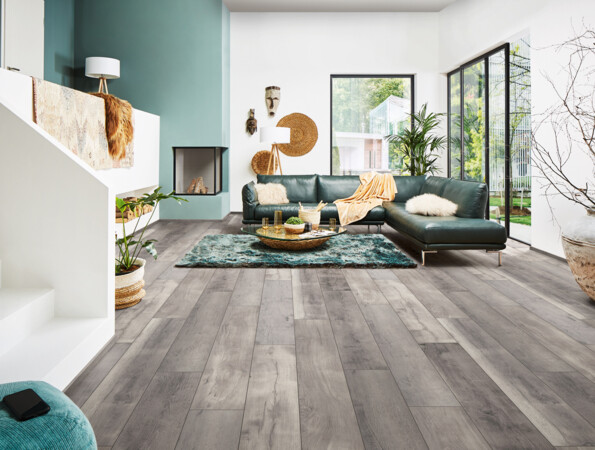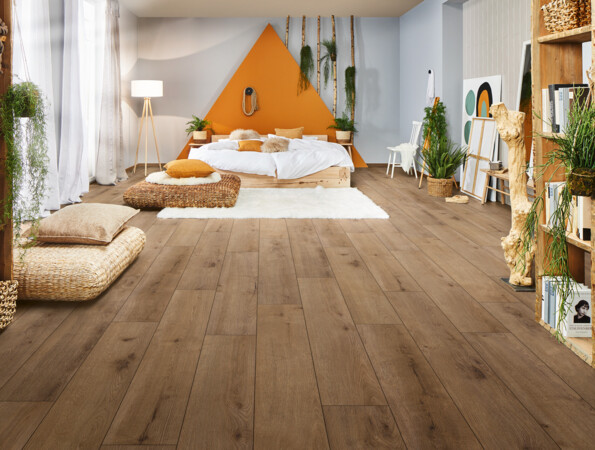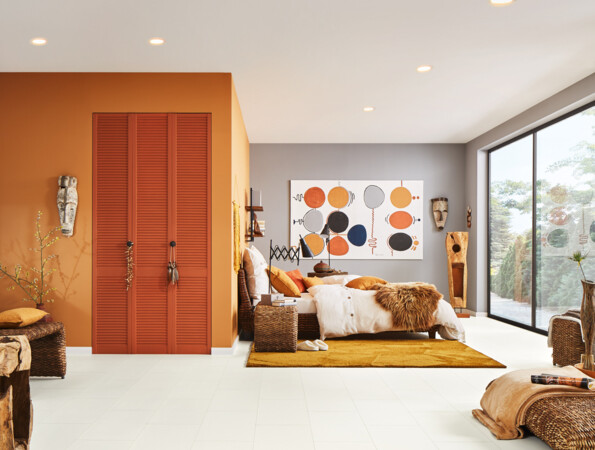5 tips for buying laminate
You are spoilt for choice when buying laminate flooring. You can choose between wood, tile or stone decors. To ensure that you feel completely comfortable in your home, the quality of the laminate should also be convincing. Therefore, when buying laminate flooring, pay attention to the five most important criteria.

Avoid trouble when buying laminate flooring
What should you look for when buying laminate flooring? With so many different types of flooring on offer, it is important to pay attention to certain criteria. After all, a new floor should bring you living comfort and not cause you additional stress. To avoid hassle, here is a summary of the most important tips you should bear in mind when buying laminate flooring.
Thanks to these tips and the simple click system for the LOGOCLIC® laminate floors, nothing can go wrong during laying.
Tip 1: Thickness
Use laminate flooring with a minimum thickness of 7 millimetres, calculated without impact sound insulation. If you buy laminate flooring that is less than 7 millimetres thick, the click system may suffer. In addition, the laminate flooring is then more sensitive to scratches and moisture.
Tip 2: Abrasion and usage class
Pay attention to the abrasion or usage class. Laminate floors are divided into residential and commercial usage classes. Classes 21, 22 and 23 cover the residential range, 31, 32 and 33 stand for commercial use, in other words offices, cafés or restaurants. The difference is the more intensive use of the floor in the commercial sector.
Tip 3: Suitable accessories
When buying your laminate flooring, remember the accessories. Because alongside the right choice of laminate flooring, a suitable laying underlay and work utensils such as knee pads are also important.
Tip 4: Correct transport
Transport is also important when buying laminate. Leave the floor covering in the original packaging. This prevents impairment by light. moisture or general transport damage.
Tip 5: Wastage
Calculate the wastage of the laminate when buying it. Generally speaking, seven percent wastage should be expected. From five rooms upwards, the wastage should be calculated at 10 percent.


